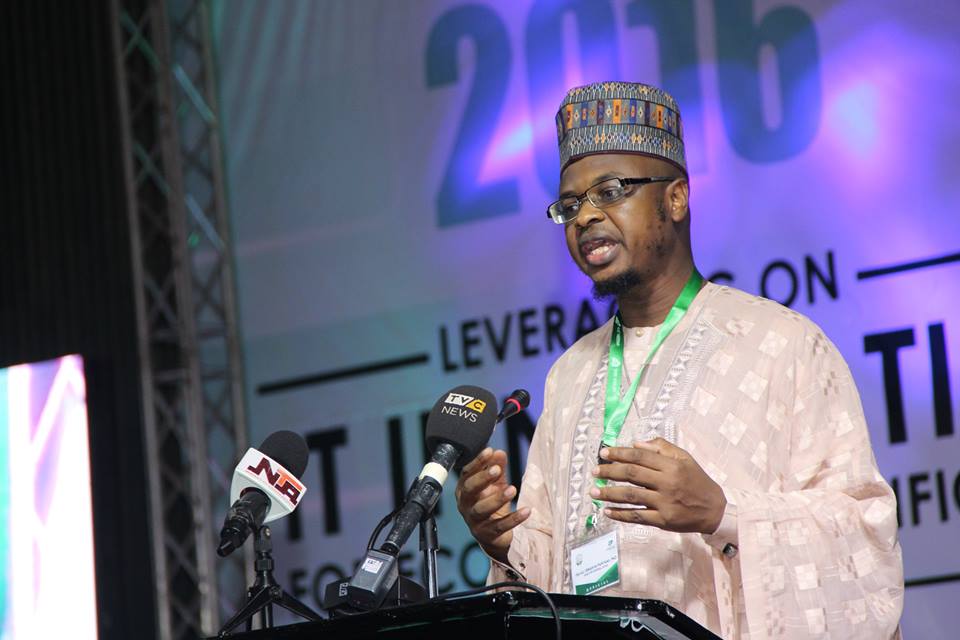- NITDA will own, administer and regulate the National PKI to ensure full use and benefits of the associated PKI-as-a-Service (PaaS)
- PKI Services will further enhance use of digital certificates to authenticate legal documents including company certificates, tax clearance certificates, etc
- IT Procurements – All MDAs must seek IT project approval from NITDA
The National Information Technology Development Agency (NITDA) has been charged with the implementation of the harmonisation of the Public Key Infrastructure (PKI) related projects in Nigeria by the presidency in line with the agency’s mandate as the IT clearinghouse for government. An official release by the agency this week in Abuja and signed by the Director General/CEO of the NITDA, Dr Isa Ali Ibrahim Pantami, states:
“The Management of the National Information Technology Development Agency (NITDA) would like to bring to the attention of all sector based regulatory agencies, Ministries, Departments and Agencies as well as the general public, that, in fulfilment of our mandate, are taking steps to harmonise Public Key Infrastructure (PKI) related projects in Nigeria.
“This is in line with one of the resolutions reached by a recent high level meeting held at the Office of the Acting President, Presidential Villa, chaired by the Senior Special Assistant to the President on ICT and attended by the Comptroller General, Nigeria Immigration Service, the Director General, National Identity Management Commission and the Director General, NITDA. The meeting was convened to resolve the challenges of lack of control and central regulation of the PKI services currently delivered by government establishments mandated.
“Resolutions from the meeting include:
- PKI Administration: As part of the harmonisation process, NITDA will take ownership, administration and regulation of the National PKI, ensuring full use and benefits of the associated PKI-as-a-Service (PaaS), including the issuance of Document Signer Certificates, the management of the Public Key Directory (PKD) via the Nigerian Country Signing Certificate Authority (CSCA) Master-list.
- PKI Services: Inline with the Federal Government’s initiative on Digital Economy, this will further enhance use of digital certificates to authenticate documents e.g. Corporate Affairs Commission (CAC) Certificates, Tax Clearance Certificates and other legal documents.
- IT Procurements: All MDAs as directed by FEC should endeavour to seek IT project approval from NITDA, in order to avoid past experiences of huge losses incurred through multiple or conflicting projects.
- Coordinating PKI Harmonisation Initiative: The Office of the Vice President is responsible for coordinating the harmonisation initiative, as part of its effort to move the nation on a path towards a Digital Economy.
“The harmonisation process would include NITDA’s inauguration of a National Stakeholders’ Harmonisation Committee, bringing together all stakeholders in the industry, to recommend the best model for PKI infrastructure in the country.
“To this end all sector based regulators would be contacted by the Agency, to provide information on current efforts related to PKI in their various sectors. This would include MDAs that requiresome form of PKI services to carry out their statutory functions in a digital environment.
“Our desire as an Agency is to collaborate with all stakeholders to ensure that Nigerians benefit from the use of Information Technology to enhance and simplify their daily activities, especially service delivery by government and other institutions.
“The National Information Technology Development Agency (NITDA) is an Agency under the Federal Ministry of Communications. The Agency was created in April 2001 to implement the Nigerian Information Technology Policy and co-ordinate general IT development and regulation in the country. Specifically, Section 6(a &c) of the Act mandates NITDA to create a framework for the planning, research, development, standardization, application, coordination, monitoring, evaluation and regulation of Information Technology practices, activities and systems in Nigeria; and render advisory services in all information technology matters to the public and private sectors.































